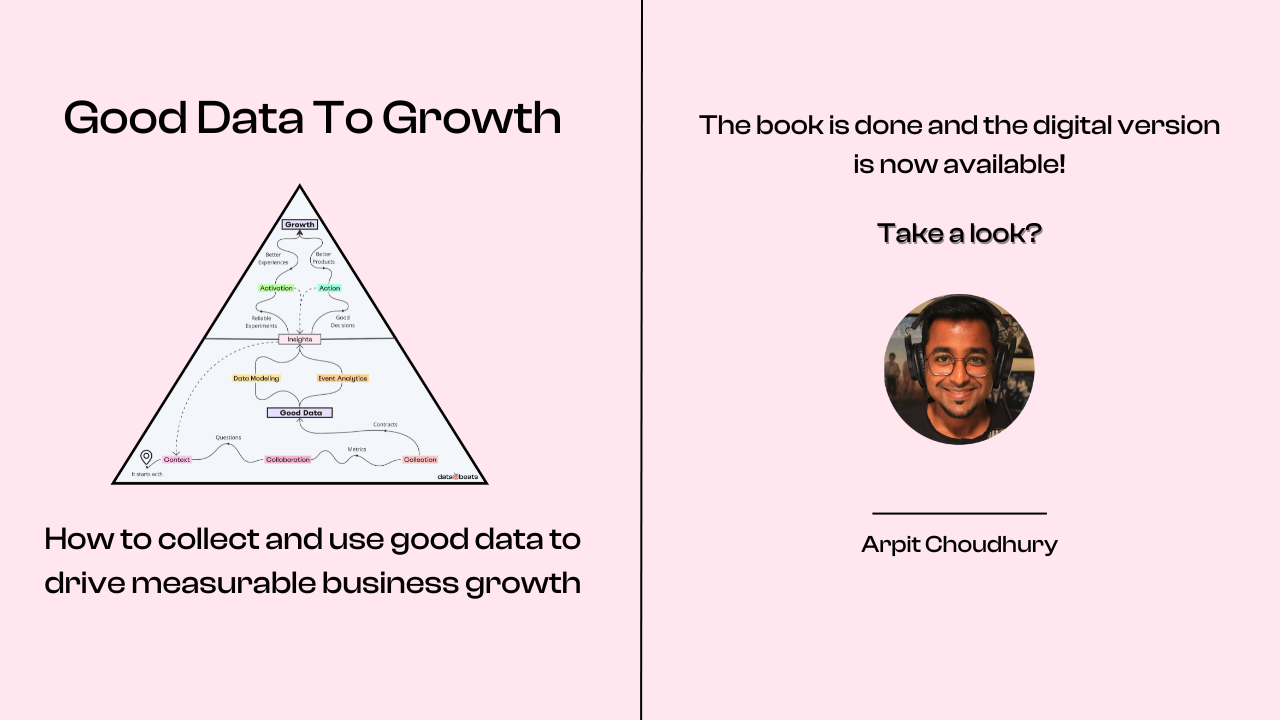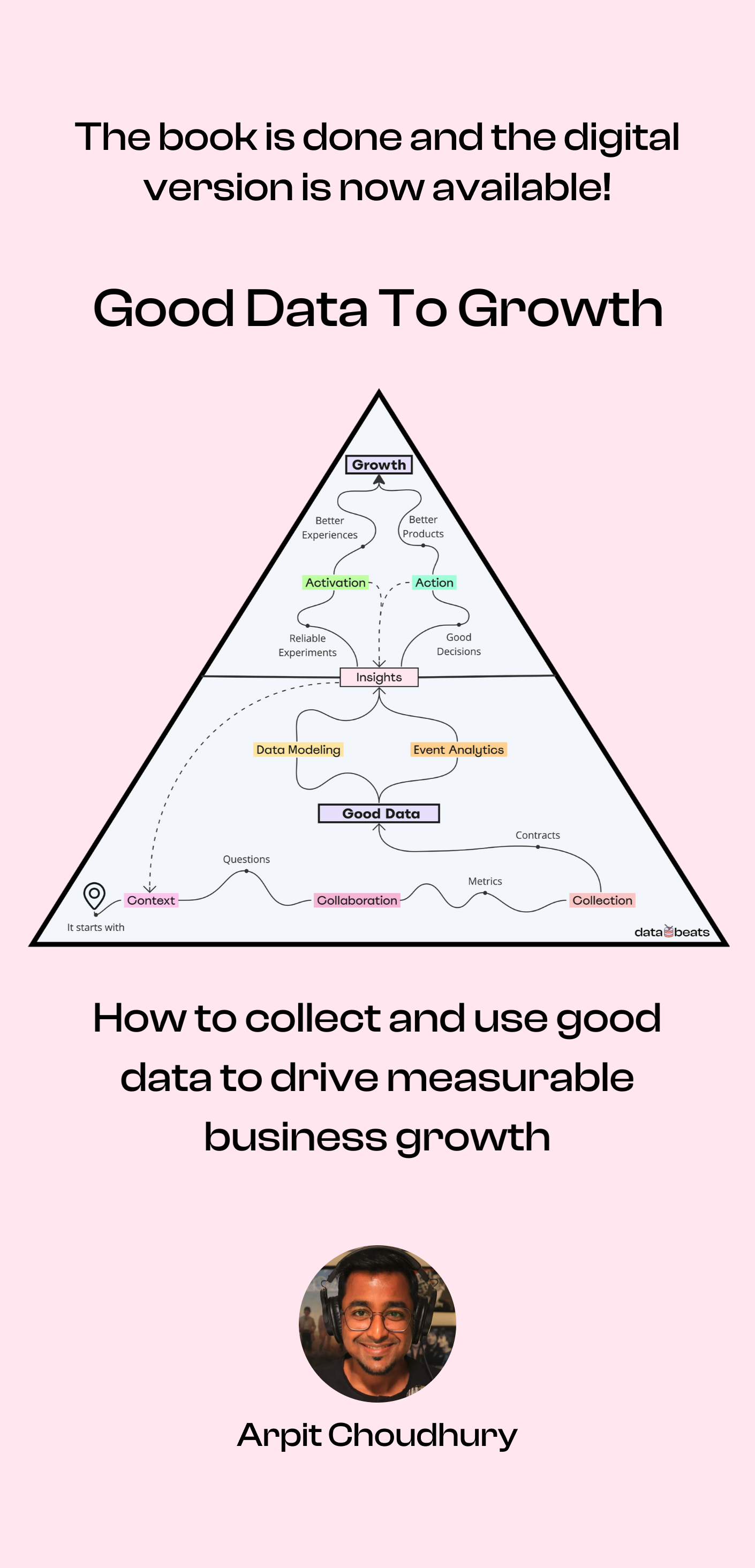🥁 This episode is brought to you by Twilio Segment 🥁
🥁🥁
In the 10 years since the term “Customer Data Platform” was coined by Mr. David Raab of the CDP Institute, the definition of CDP has evolved a lot.
Slowly but surely, the beast that is the CDP has grown new heads — or components — that are complementary in nature but fulfill distinct needs of an organization leveraging a CDP.
Part of the confusion regarding what a CDP means stems from the fact that vendors that recognized the opportunity early have been pushing the CDP envelope by building or buying components, while many others are riding the CDP wave by selling individual components (and calling themselves a CDP nonetheless).
Segment, which was acquired by Twilio in late 2020, has been around since the early days. And so has their VP of Product, Kevin Niparko, who’s been with Segment since 2015 and has had a front-row seat to how the CDP space has evolved over the last 8 years.
In this episode, Kevin and I rapidly discussed his early days as a growth analyst at Segment followed by the key innovations that put Segment on the map. We concluded the episode by discussing the two underrated but extremely important components of the CDP – Data Quality and Privacy.
You can also watch the full episode and share your thoughts on LinkedIn.
🥁🥁
I tend to take it for granted that everybody knows what a CDP is or does, so I really appreciated Kevin’s analogy for those who’re trying to wrap their heads around CDPs and why they’re all the rage in the data space:
Kevin:
Customer Data Platforms help businesses collect, unify, and activate customer data.
An analogy to think about this is if you were running a business before the internet — running a little shop — you'd get to know all of your customers as they came into the store.
You'd develop relationships with them — you'd have conversations, you'd understand things about their lives, who their family was — and you’d find out whether they found some items too expensive or too cheap, or if they like the pink pants or the green overalls.
Today, those same interactions are happening, but they just happen to take place thousands of times per day, across multiple digital channels. And for businesses to make sense of all of these interactions and drive toward customer outcomes is becoming a really hard data engineering and data infrastructure challenge.
Here’s what Kevin had to say about staying compliant and engaging with audiences in a privacy-friendly manner:
Kevin:
I think folks often feel this false trade-off between personalization and privacy where you can either drive personalized experiences or be privacy compliant — we think that's a false dichotomy.
If there's anything that we have learned from Netflix recommendations or the Amazon homepage, it's that data and privacy are not necessarily at odds.
However, we do find that the best companies out there are transparent with their end users as to how they're collecting and how they plan to use data. They provide advanced controls to their end users for how that data can be managed, and they provide outsized value back to the consumer.
And here’s how Kevin and his team think about the Data Quality component that doesn’t get the attention it deserves when people talk about CDPs in general, and Composable CDPs in particular:
We spend a lot of time thinking about how can we take what we're learning in the software development process and apply that to customer data platforms and data infrastructure — we refer to this internally as CDP as code.
So essentially, how do we think about CDP deployments as Terraform modules or as encoded in files that you can submit poll requests to and have a change log for? How do we publish versions of data dictionaries so everybody can programmatically consume and apply them to their business?
Some of the top development teams that we're working with treat the CDP as production software essentially — with all of the hooks and tooling around it.
And I think that's the right approach for CDP infrastructure that’s critical to business workflows.
I personally learned a few additional things while researching for this episode and my key takeaway is this:
The data industry needs to focus less on the new and flashy and take a moment to acknowledge the innovations that enable most of what’s new and flashy.
I also found it fascinating to learn that Segment launched its Warehouses product in 2015 that let customers sync data to their own Redshift or Postgres database — long before the rise of the cloud data warehouse.
Lastly, a conversation about CDPs in 2023 is incomplete without the mandatory talk about the Composable vs Packaged CDP debate. Here’s what Kevin had to say:
Kevin:
Regardless of which camp you're in, or what view you subscribe to, I think both sides can agree that a successful implementation of a CDP combines real-time event streams with syncs in and out of the data warehouse.
You need observability and alerting to understand how your pipelines are working. And you also need compliance and consent controls baked in to ensure that you're managing end-user data appropriately.
We're hearing from many businesses that have been through that Composable CDP cycle, and have realized that it was actually a huge distraction from their core business and from the outcomes that they were looking to achieve — lowering customer acquisition rate and increasing lifetime value through great engagement.
A privacy expert and a friend of mine, Siobhan Solberg, recently shared this idea that resonated with me very strongly, which I think is very relevant to this conversation:
🥁🥁
Marketing needs Privacy and Privacy needs Marketing.
🥁🥁
If that resonates with you too, definitely check out our conversation on data minimization.
🥁🥁
You might also want to subscribe to databeats on Apple, Spotify, YouTube, or wherever you get your podcasts! 🥁









.jpg)
